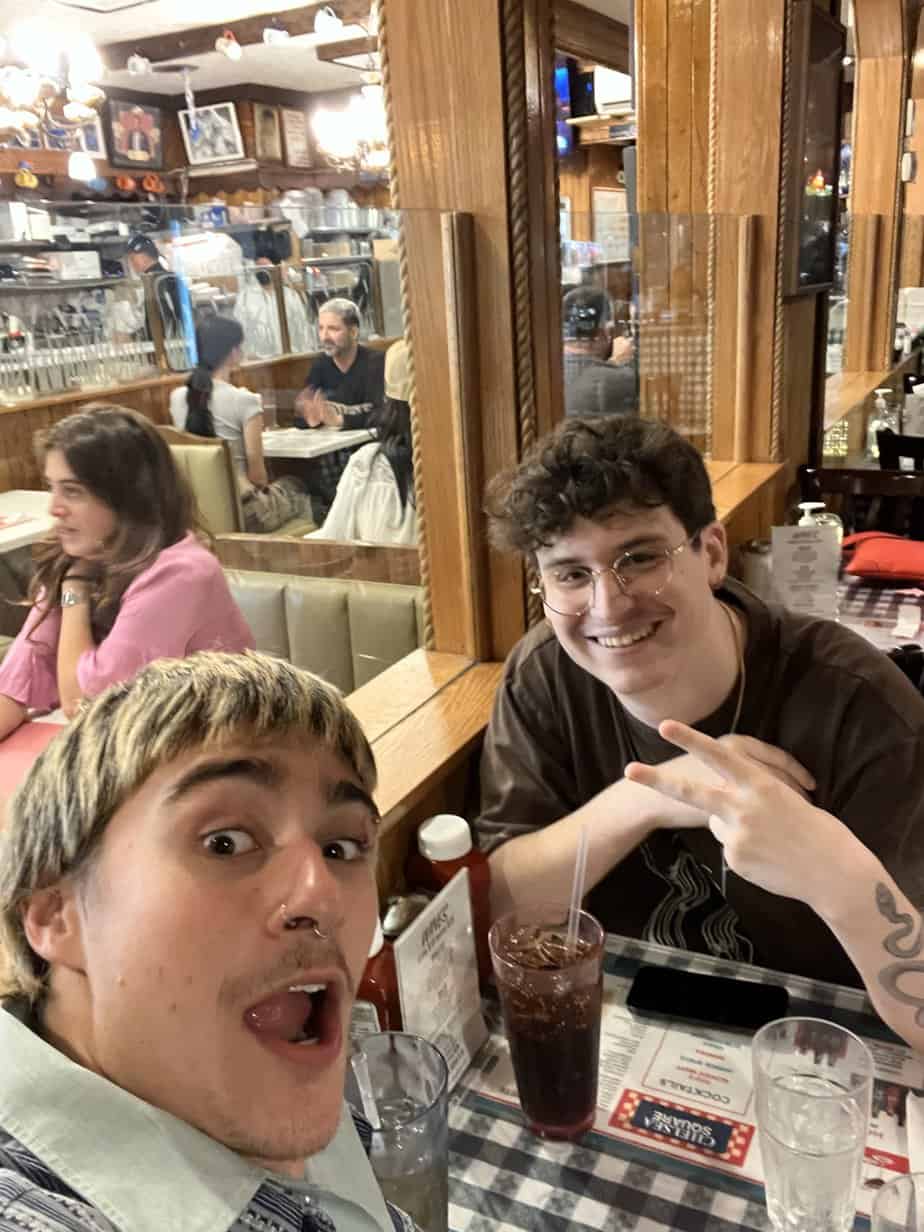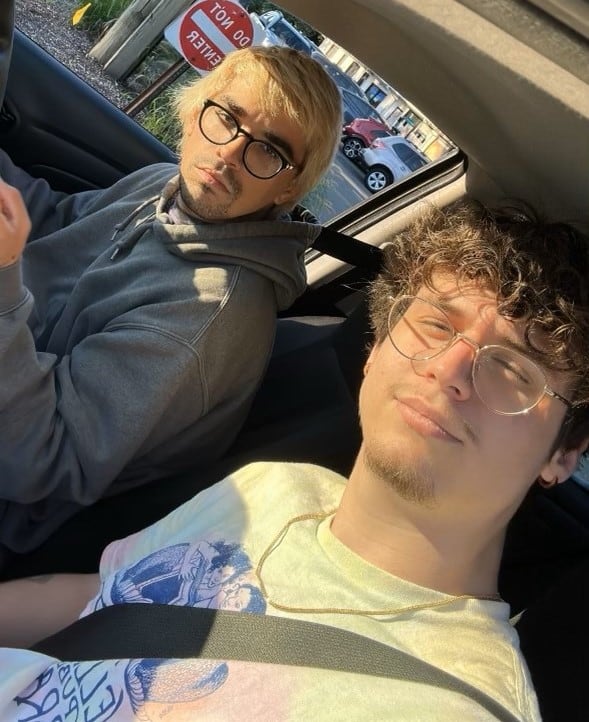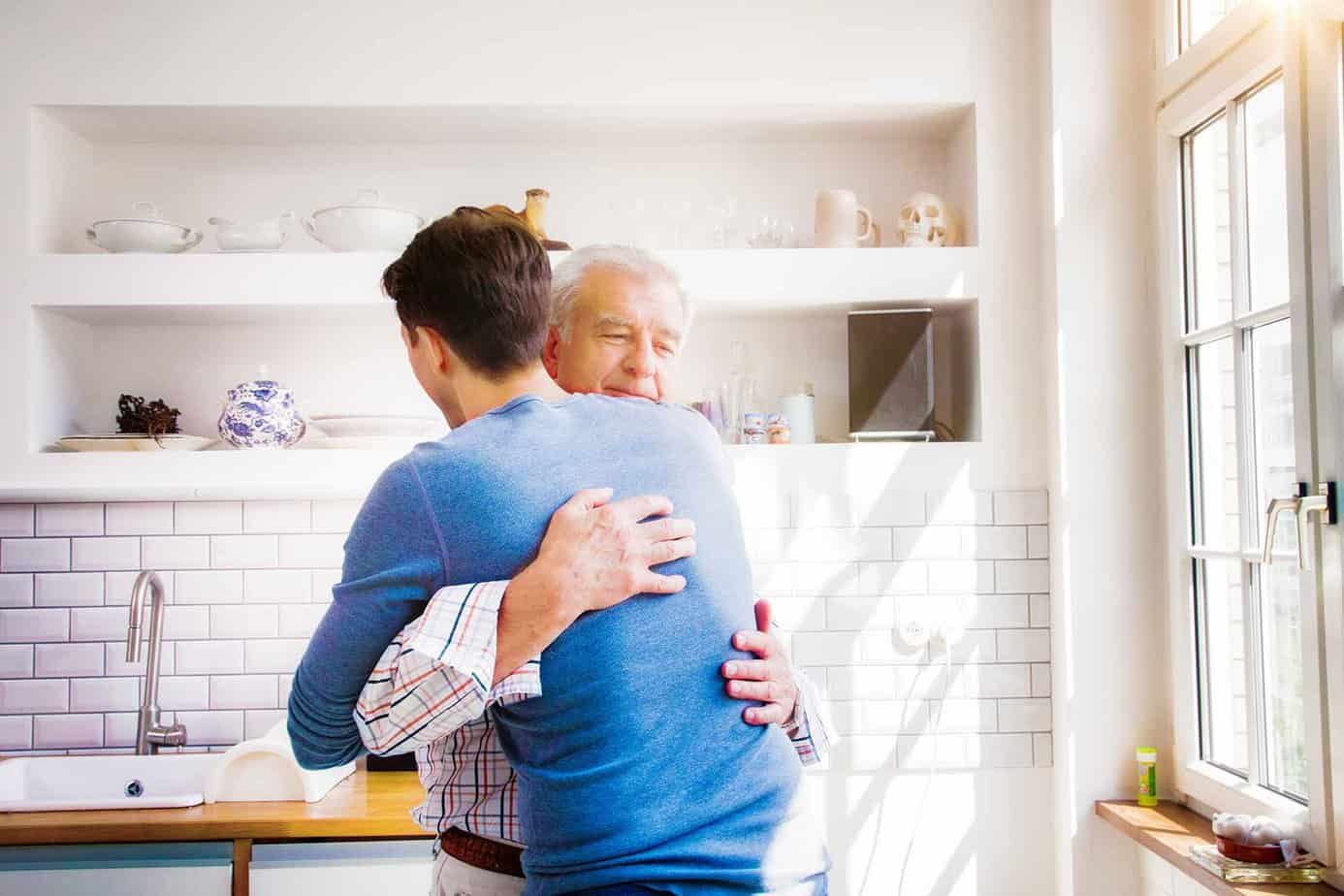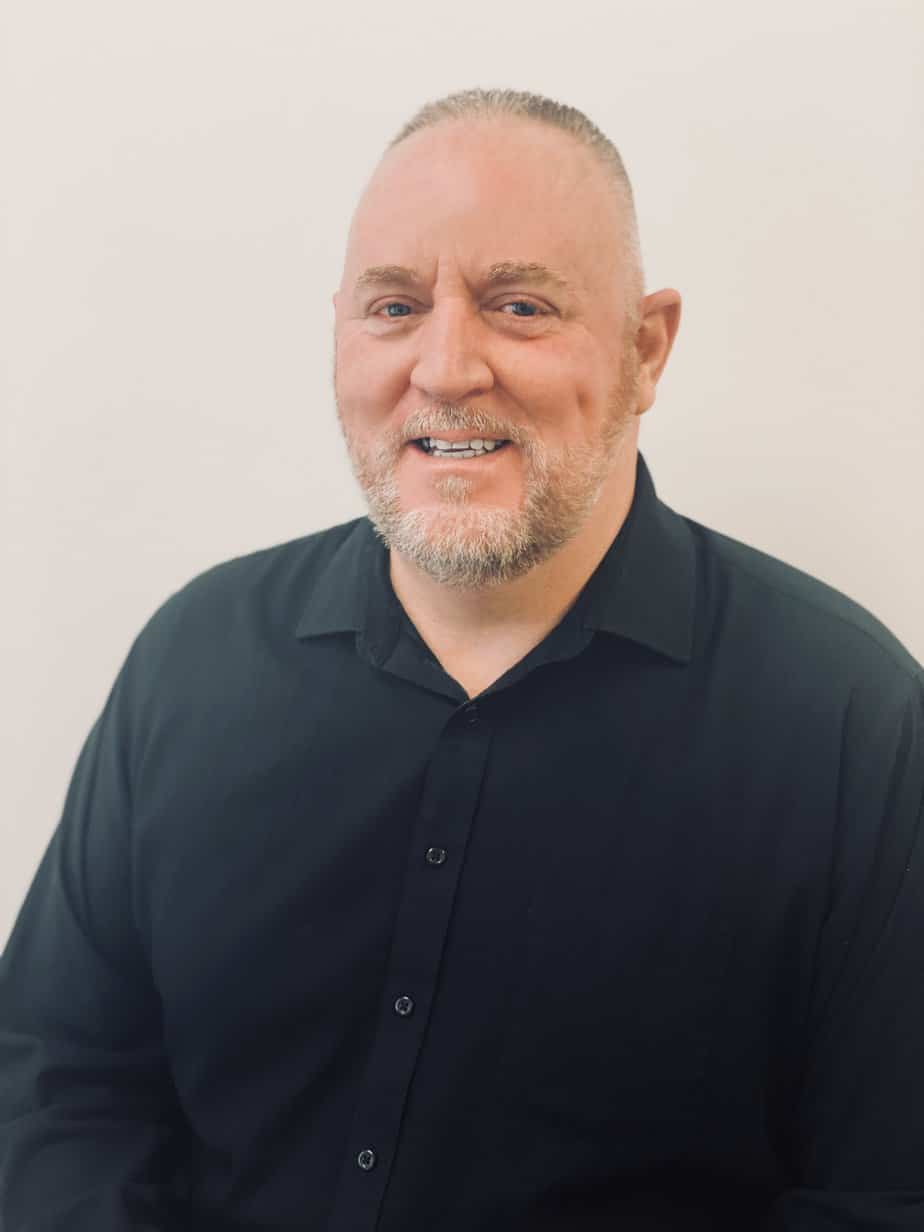- Sobriety Date: October 27, 2021
- AA Lover
- Aspiring Professional Recovery Coach
- Living in the Present
Transcript
Ezra struggled with anxiety and self-medicated with marijuana. Eventually, his substance use turned into chronic weed smoking and substance abuse, and he became sick. Ezra was strongly against Alcoholics Anonymous and sobriety, but he knew something needed to change. Here’s how Ezra began his recovery journey, found his home in AA meetings, and found his place in the recovery community.
My name is Ezra and my sober date is October 27th, 2021, so I guess I’ll just start from the beginning. When I was a kid, from a very early age, as long as I can remember, I felt different from other kids. Even in kindergarten and preschool, from a very early age, it felt like other kids had something figured out about life. They had this secret and I wasn’t let in on the loop. There was some secret that I wasn’t being told, and if I knew this secret, then everything would be great. I’d have life all figured out.
Smoking Weed for the First Time
I come from a family with two moms, and so in a lot of ways, as much as I felt different, I was also made to feel different. As I got older, I was bullied a lot, and I just never really felt like I fit in anywhere. I never felt like I belonged. I think that to some degree I started to keep people at arm’s length so that I wouldn’t get hurt. I isolated a lot and I didn’t really seek out connection.
All these feelings I had as a kid caused me to feel uncomfortable in the world. On the last day of 8th grade, me and my friend got a joint from his tutor, who was a high schooler, and we went to the woods and smoked it. A lot of people talk in their stories about having this “I’ve arrived” moment, and I do have one, but it wasn’t this first time; [although] the first time, I liked it.
Being a “Normal Teenager”
In a lot of ways, I felt more comfortable socially, but at the same time, it didn’t stick out to me as anything crazy. It was a cool thing to say that I had fun and go tell the other kids at school I smoke weed, but it really didn’t stand out to me as something that I immediately wanted to do again.
And then, at the beginning of freshman year of high school, (so after that summer) in between the school years, me and my friends were going to go smoke weed again, and we got caught by the cops. I was kind of scared, but they were like, “Whatever, you guys are 14.”
I grew up in Manhattan and Washington Heights, but I live in Westchester now. At this point, I was living in Westchester. And they’re like, look, you’re a bunch of white kids in the suburbs, and you’re 14. Just call your parents and give us the weed. We’re not going to arrest you. Which, you know, that’s nice of them to do, but that really, really scared me away from wanting to do any kind of drinking or drug-related things for a little while.
![]() Throughout high school, I smoked weed here and there with friends. It was very much a social activity. And then in the fall of my junior year, I got my own dab pen, and previously all of it had been [like]—I show up to a place and another one of my friends show up and he’s got weed. This was the first time that I had my own weed—like I had my own, that I bought for myself that I was going to use for myself.
Throughout high school, I smoked weed here and there with friends. It was very much a social activity. And then in the fall of my junior year, I got my own dab pen, and previously all of it had been [like]—I show up to a place and another one of my friends show up and he’s got weed. This was the first time that I had my own weed—like I had my own, that I bought for myself that I was going to use for myself.
And the day that I got it, I waited until super late at night when my parents were asleep, and late at night, I smoked from my dab pen, and this was my kind of “I’ve arrived” moment.
Is Marijuana Addictive? Becoming a Chronic Weed Smoker
Alone in my room late at night, I felt like I had figured everything out. I felt like all the issues that I had just didn’t matter in that moment. I had really bad anxiety and everything that I was constantly anxious about didn’t matter. I could just exist in this moment, and that was the feeling that I was looking for my entire life—that feeling that I felt like everybody wasn’t letting me in —that was that feeling.
And so from that day that I had my own, I was smoking weed almost every single day, pretty much until I got sober. I ended up that December dropping out of school. I was convinced that weed being the answer to all my problems, I could do better in online school, because I could be high while I was doing it and not have to worry about being at school while high. Because, you know, in my mind, if you show up to school high, that means you probably have a problem.
Shortly after I stopped going to school and tried to do online school, COVID hit, and that really gave me an excuse. I, at the time, said, “This is why I can just stay home and smoke weed all day. Because what am I going to do? There’s a lockdown. Like I can’t go out.” What else am I going to be doing other than smoking weed and playing video games, and not doing my online school that I thought I would be better at?
Can You Overdose on Weed?
And then in June 2020, I woke up one morning, and I was physically ill and I was throwing up. I was in pain. My stomach was in pain. It’s, to this day, the worst pain I’ve experienced in my life, and it wasn’t stopping, and we didn’t know what was going on. So I went to the ER, and they didn’t know what was going on, and then eventually it stopped.

And I came home and I went to bed, and the next morning, my mom woke me up and they said that they’d figured out what was wrong. I had a condition called CHS, which stands for Cannabinoid Hyperemesis Syndrome. There’s a long science-y explanation, but basically what it means is that I can overdose on weed. And in this moment I was like, “So you’re telling me I can never smoke weed again?” And yeah, they were.
That was so devastating because I felt like I had had this solution that wasn’t really a solution, it was self-medicating, but it was what worked at that time. So I managed to last a few months without using, just out of fear of getting sick. Eventually, I convinced myself I could use again because I have what they call in AA a “built-in forgetter;” this disease wants me to continue to use.
At the end of the day, my disease of alcoholism wants me dead, and it’ll do anything to get me to do that. So if that’s forgetting how bad it was, or forgetting that I can’t use, that’s what it will do to me.
Trying to Overcome Marijuana Addiction on My Own
And so I spent the next 18 months going through a cycle of a month of using and then getting sick after that, then a month of staying kind of “dry.” It was really just not to get sick. I think of getting sober as having a specific intent behind it to improve your life, and that was really not there in those month-long periods.
The last summer [using], the summer of 2021, which is what I kind of consider to be the lowest point of my bottom, I completely gave up on myself. I was hopeless. And so, I wasn’t even stopping using when I would get sick. I would just continue smoking weed through it. So I was basically sick 24/7, and my stomach and body were really, really in bad shape. One day I was throwing up, and I had this moment where I said to my mom, “I need to go to inpatient rehab tomorrow.”
Going to Inpatient Drug Rehab
And that, looking back, that couldn’t have been me. That’s God doing for me what I couldn’t do for myself and, luckily, because [my parents had] been pushing for it for a while. They already had rehabilitation centers researched. They already had a rehab to take me in. And so, the next morning my parents came into my room to wake me up and they said, “Get in the car. All your stuff is already packed. We can just leave now. You’re going to Turnbridge.” So I went to treatment.
The first week and a half I was there, I was still sick from CHS. I started to get a little better, and they told me that. I immediately called my parents and I was, “You have to take me out of here. I never said that. I wanted to go here. Like—I never agreed to this.” And they were like, “No, you did. You said that you wanted to come.”
Finding My Place in Alcoholics Anonymous
I hated Alcoholics Anonymous. I really, really hated AA. I was a militant atheist and I thought AA was a cult. I thought it was religious [junk]. I thought that everyone there was brainwashed. I didn’t believe that it would work for me, I thought I was too special for that. I thought, maybe it’s great for you guys. It’s great that it works for you guys, but I’m different, and if you guys drank like I did and drugged like I did—or, if you guys knew what it was like in my head, and if you knew what I felt like, you would drink and drug like I did.
It turned out that everyone knew what it was like in my head in AA, and they all knew how I felt. They had all felt that before and they had figured out a solution to not drink and drug like I did anymore.
And I started going to AA meetings begrudgingly, but I still didn’t want to get a sponsor. I still didn’t want to do the 12 steps of AA, because they were scary. You know, it requires work and it requires spirituality, and it requires things that I didn’t feel that I was capable of doing.
But around 90 days I decided, okay, I’ll do the steps, and the 12 steps of AA changed my life. Like more than anything, the steps changed my life. I got a home group. I got involved with the community. I know I talked in the beginning about never feeling like I had a place where I belonged, and AA is the only place that I felt that I belonged right around the time I got a year sober.
Relapse Prevention with a Recovery Coach at Mountainside
And I moved back to New York, where I’m from, and I started meeting with a recovery coach at Mountainside. I’m still in contact with a lot of my AA community in Connecticut, but building a community [in New York].
I came in hating AA, I came in hating the idea of sobriety, and at the same time, I knew I needed to be sober.
I knew I needed something to change, and I love AA today more than anything in this world. I live in so much gratitude for AA and for the people who have helped me, and [I have] so much gratitude for the opportunities to help others, that I’ve gotten the opportunities to do service.
Service Work in the 12 Steps of AA
Doing service is such a major part of AA, and there are few feelings that I love more now than being of service. And I feel incredibly grateful for all the opportunities I have now to be of service. going through the steps for a second time with a new sponsor, and it’s just it’s just been an amazing experience.

They tell you when you come in that you will get a life beyond your wildest dreams. And I didn’t understand what that meant, but I can honestly say today that I have a life beyond my wildest dreams, and what that looks like is having community and fellowship. It looks like being of service, it looks like practicing gratitude, and it looks like having a higher power of my own understanding.
Becoming a Recovery Coach Myself
[It’s] something that I didn’t comprehend when I first came in, but having a relationship with a loving God is so important within sobriety, and now, in my life, I’m getting the opportunity to start working in the recovery industry soon. I just finished training as a recovery coach at Mountainside. I did their training there, and I’m just waiting for my certificates to be verified by the New York State Board, and I’ll be able to start working as a recovery coach. And still, I get to work with addicts and alcoholics all day, and that is such a gift.
As much as it is separate from my own recovery, service is so much of a principle of recovery. And I haven’t started yet, but I’m really excited, and it’s not something that I would have imagined in a million years. I hated the concept of being sober. I hated AA, and I certainly hated my rehab. And now, it’s crazy to think that I would be here. Quite frankly, one day sober when I was still using was beyond my wildest dreams, and a year and nine months is such a gift. I’m so grateful.
Advice to the Newcomer Dealing with Marijuana Addiction or Alcoholism
If you’re newly sober, if you’re counting days, [listen to] all the things that they say in AA meetings. Really take it one day at a time. Even now, in my sobriety, I still take it one day at a time. I don’t know what’s going to happen tomorrow.
The thing with alcoholism is, I could drink at any time. I could drink tomorrow. I know I’m not going to today, though. Because today I’m doing this.
Then, tonight I’m going to a meeting that I go to every Monday night. It’s about building habits, I know where I’m going to be tonight, and I know where I’m going to be every Monday night for the foreseeable future. That keeps me sober, and even today, I don’t know what’s going to happen tomorrow. I just take it one day at a time. And if you need to take it one hour at a time or one minute at a time, it’s about living the present and taking it step by step.
If you’re scared by the steps when you come in—if you’re really scared by a fourth step —you don’t have to be thinking about your fourth step when you haven’t even finished your first step yet. That’s ridiculous. You’re not going to start climbing the ladder from the fourth step, you start from the bottom. And so, just take everything one step at a time. Keep it simple.
Other outside help outside of AA is great too. Therapy is super important, I think. If you need recovery coaching, that’s also a really great resource, especially if you’re having trouble getting into recovery, finding meetings, and learning how to navigate sobriety. That’s really helpful. To every newcomer I talk to, I say—get a sponsor, do the steps—that is the program.
*****
As Mountainside celebrates 25 years in service to the recovery community, we will be highlighting stories from alumni, their family members, and Mountainside staff, whose own recovery journeys inform and inspire the work we do each day. Be sure to check our 25th Anniversary page for new stories every month. If you wish to be featured, please contact kevin.doyle@mountainside.com.
If you or a loved one is struggling with addiction, Mountainside can help.
Click here or call (888) 833-4676 to speak with one of our addiction treatment experts.

 By
By 








